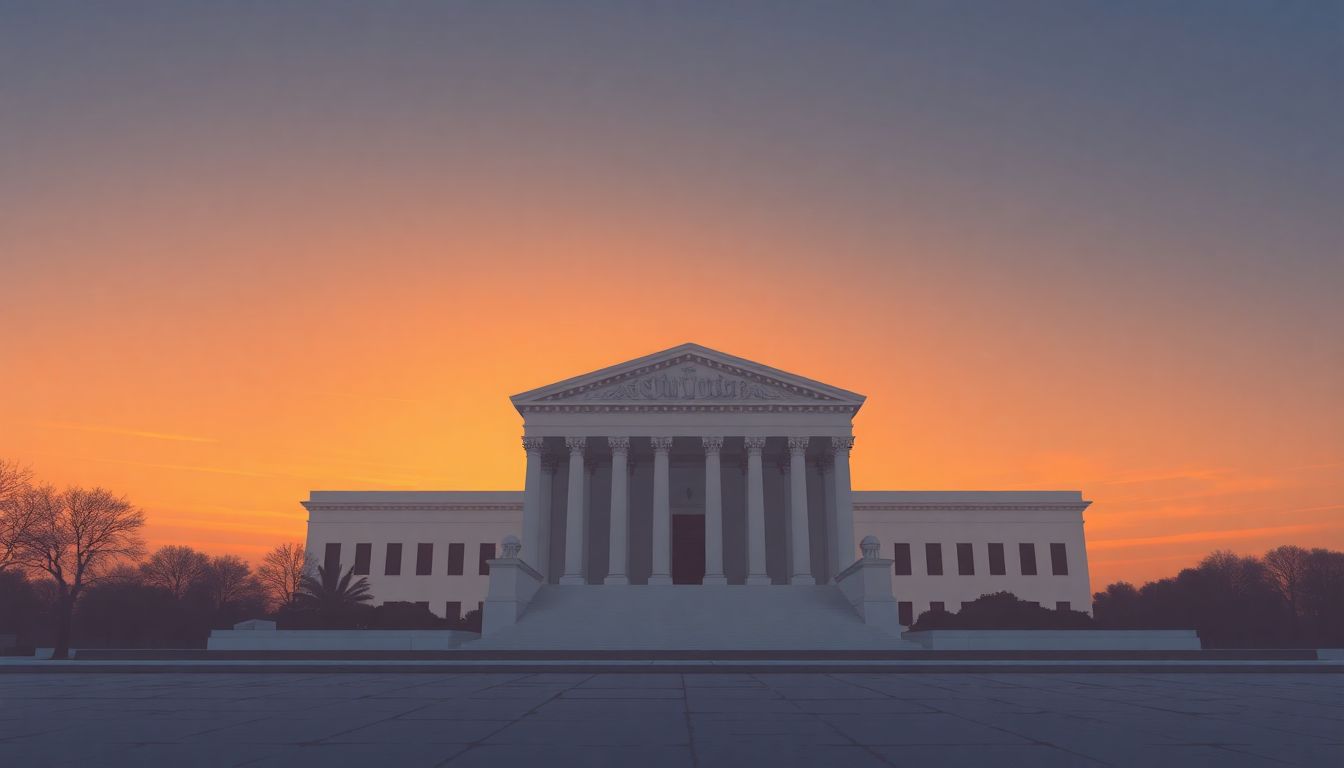Navigating the complexities of constitutional law can feel like wandering through a maze without a map. It’s packed with intricate theories, landmark cases, and a vocabulary that can sometimes seem like a foreign language. You’re not alone if you find yourself scratching your head over it all!
But don’t fret! If you stick around, I’ll share some essential prompts designed to clarify these concepts, motivate your analysis, and even prep you for exams. Think of these prompts as your personal guide to mastering constitutional law topics with ease.
From impactful amendments to current hot-button issues, we’ll explore everything you need to tackle constitutional law with confidence. Let’s dive in and simplify this journey together!
Key Takeaways
- Use specific prompts to clarify complex constitutional law concepts and prepare for exams.
- Understand key terms like due process, equal protection, and separation of powers.
- Analyze landmark cases to grasp how constitutional principles are applied in real situations.
- Review the significance of constitutional amendments and their impact on civil rights.
- Explore the ongoing debate over states’ rights versus federal authority through relevant cases.
- Compare international constitutional laws for broader insights into diverse governance systems.
- Stay updated on current constitutional issues that affect civil liberties and social justice.

Essential ChatGPT Prompts for Constitutional Law
If you’re looking to dive deep into constitutional law and genuinely understand the intricacies of this field, using ChatGPT can be a game-changer. Here are some effective prompts you can use:
- “Generate a list of key terms and definitions related to constitutional law.”
- “What are some thought-provoking questions regarding the application of constitutional law in today’s society?”
- “Create a scenario where constitutional law might be interpreted differently by different courts.”
- “List essential prompts for legal research in constitutional law, focusing on case law and judicial interpretations.”
- “How can ChatGPT assist students in studying constitutional law?”
Understanding Constitutional Law: Key Concepts and Definitions
Grasping constitutional law involves familiarizing yourself with its foundational concepts and definitions. Constitutional law is essentially the body of law that interprets and applies the Constitution.
For instance, understanding terms like “due process,” “equal protection,” and “separation of powers” is vital.
Here are some prompts to help clarify these key concepts:
- “Define the term ‘due process’ and its significance in constitutional law.”
- “Explain the concept of ‘separation of powers’ and how it operates within the U.S. government.”
- “What are the fundamental principles of constitutional law that every student should know?”
Prompts for Analyzing Constitutional Cases
Analyzing constitutional cases helps in understanding how law is applied in practical scenarios. This process usually involves evaluating judicial reviews, precedents, and the interpretations of key legal principles.
To get insightful analyses of landmark cases or any constitutional issues, consider using these prompts:
- “How to analyze landmark cases in constitutional law, focusing on their judicial impact?”
- “What factors influence decisions in constitutional cases? Provide examples.”
- “List important constitutional cases and summarize their implications on current law.”
Prompts for Summarizing Amendments and Their Impact
Understanding constitutional amendments and their lasting impacts is crucial for any law student or practitioner. The amendments provide a framework for civil rights and liberties.
Here are prompts to help summarize these amendments effectively:
- “Summarize the key amendments in the U.S. Constitution and their significance.”
- “Discuss the historical importance of the 14th Amendment in shaping civil rights.”
- “How do recent amendments influence current laws and rights in the U.S.?”

Prompts for Discussing Landmark Supreme Court Decisions
When it comes to constitutional law, understanding landmark Supreme Court decisions is vital because they shape the country’s legal landscape.
These decisions highlight how constitutional principles are interpreted and enforced.
Here are some effective prompts you can use to discuss these crucial rulings:
- “List and explain the significance of five landmark Supreme Court cases in the United States.”
- “Analyze how the ruling in Roe v. Wade has influenced discussions about reproductive rights.”
- “Discuss the implications of the Obergefell v. Hodges case for same-sex marriage rights and federal law.”
Prompts for Exploring States’ Rights vs. Federal Authority
The balance between states’ rights and federal authority is a contentious issue that dates back to the founding of the nation.
Understanding this dynamic is essential for grasping how laws are enforced differently across the states.
Here are some prompts tailored for this topic:
- “Explain the ongoing debate surrounding states’ rights versus federal government powers.”
- “Investigate significant Supreme Court decisions that have impacted the states’ rights doctrine.”
- “Compare the constitutional arguments for states’ rights and federal authority using relevant case studies.”
Prompts for Comparing International Constitutional Laws
Constitutional law varies widely across countries, reflecting diverse philosophies and governance styles.
By comparing these laws, you can uncover unique insights and contextualize the U.S. legal system.
Consider using these prompts to facilitate discussion on international constitutional frameworks:
- “What are the fundamental rights enshrined in the constitutions of three different countries?”
- “Analyze how Canada’s constitutional protections compare to those in the United States.”
- “Discuss the impact of international law on national constitutional frameworks, highlighting specific examples.”
Prompts for Examining Current Issues in Constitutional Law
Constitutional law is ever-evolving, with current issues shaping its future significantly.
Understanding these challenges can prepare you for legal debates and discussions in today’s context.
Here are some prompts focused on contemporary issues:
- “Identify and discuss the most pressing constitutional issues in today’s society.”
- “Examine the impact of recent judicial decisions on civil liberties and social justice efforts.”
- “Analyze the role of technology in shaping constitutional debates regarding privacy and surveillance.”

Prompts for Writing Opinion Pieces on Constitutional Matters
Writing opinion pieces on constitutional matters requires a clear understanding of both the law and the public discourse surrounding it.
To craft compelling arguments, you should consider using these prompts:
- “Draft an opinion piece discussing the implications of the First Amendment on contemporary debates about free speech.”
- “What are the constitutional arguments for and against government surveillance in the digital age?”
- “Analyze how public opinion influences Supreme Court decisions regarding constitutional rights.”
Prompts for Preparing for Constitutional Law Exams
When preparing for constitutional law exams, it’s essential to focus on key areas and develop effective study techniques.
Use these prompts to enhance your exam preparation:
- “List the top ten topics in constitutional law that should be prioritized for exam study.”
- “Create a study schedule that outlines a plan for reviewing major constitutional principles and case law.”
- “Discuss techniques for effectively answering essay questions in constitutional law exams, including outline strategies.”
FAQs
Constitutional Law primarily encompasses the interpretation of the Constitution, including rights and liberties, the structure of government, and the relationship between federal and state authorities. Key concepts include judicial review, separation of powers, and federalism.
Prompts can facilitate deeper understanding by encouraging critical analysis, summarizing complex materials, and creating connections between cases and principles. They help students articulate their thoughts and explore various interpretations of constitutional topics.
Landmark Supreme Court decisions shape legal precedents, interpret constitutional rights, and reflect societal values. They often redefine issues like civil rights, federal authority, and individual liberties, thereby influencing legislation and public policy.
This understanding is crucial as it impacts the balance of power in governance, shapes policy decisions, and affects citizens’ rights. Conflicts in this area can lead to significant legal challenges and influence national discourse.
